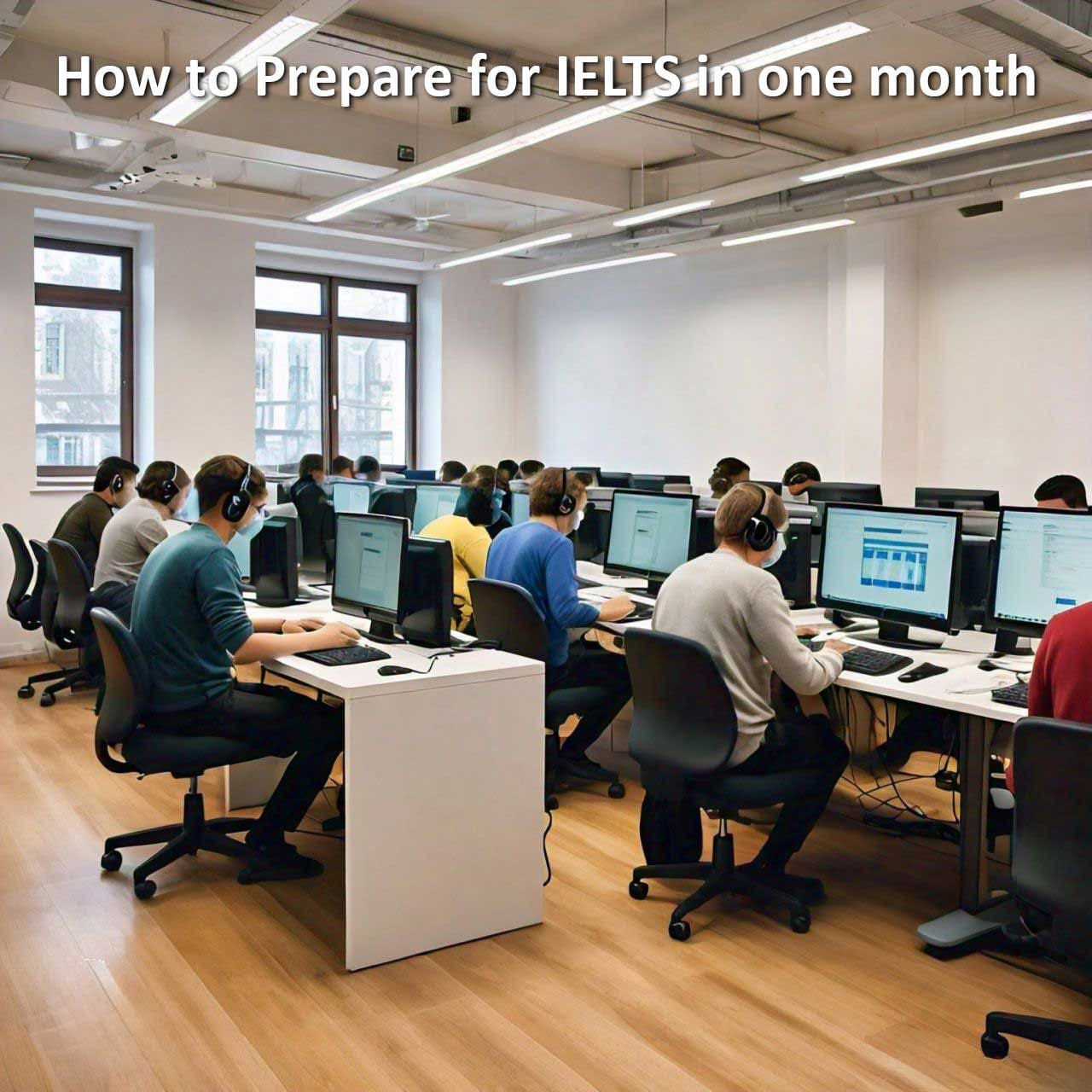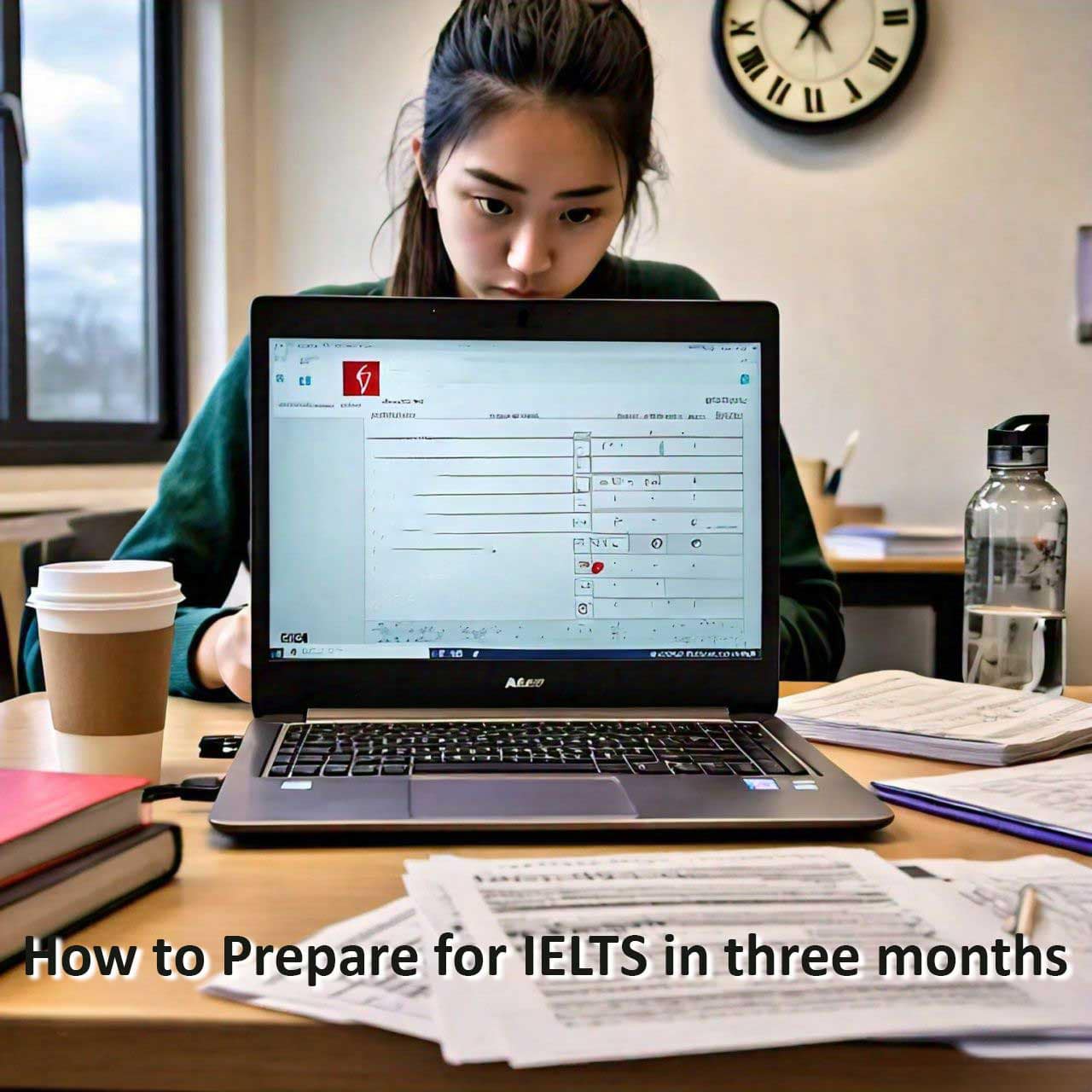Preparing for the IELTS exam can feel overwhelming, especially when you only have one month to study. However, with a focused study plan and the right strategies, you can achieve your desired band score. In this guide, we’ll break down how to prepare for IELTS in one month, ensuring that you cover all sections of the test while making the most of your time.
Table of Contents
Week 1: Understanding the IELTS Format and Basics
1.1 Get to Know the Test Structure
The IELTS exam is divided into four sections:
- Listening: 40 questions, 30 minutes + 10 minutes for transferring answers.
- Reading: 40 questions, 60 minutes.
- Writing: Two tasks, 60 minutes.
- Speaking: A face-to-face interview, 11–14 minutes.
Understanding the format ensures you’re prepared for the types of questions and time constraints in each section.
1.2 Determine Your Target Band Score
Different institutions and organizations have varying requirements for IELTS scores. For example:
- A university may require a minimum score of 7.0.
- A visa application may need a score of 6.0 or higher.
Knowing your goal will help you focus on areas that need improvement.
1.3 Take a Diagnostic Test
Start with a full-length IELTS mock test to assess your current skill level. Platforms like IELTS.org and British Council offer authentic practice tests.
- Identify your strengths and weaknesses in Listening, Reading, Writing, and Speaking.
- Use your results to create a targeted study plan.
Week 2: Building Core Skills
2.1 Focus on Listening
The Listening section includes conversations, lectures, and monologues. To improve:
- Practice Daily: Use authentic IELTS listening materials, such as those available on Cambridge English.
- Work on Accent Familiarity: Listen to podcasts or shows in British, Australian, and American English.
- Master Keyword Identification: During practice, underline or note keywords in questions to focus on relevant information in the audio.
Example: In a conversation about booking a hotel, keywords like “check-in,” “amenities,” and “price” might signal important details.
2.2 Strengthen Reading Skills
The Reading section requires speed and accuracy. Tips for success:
- Skim and Scan: Practice finding main ideas and specific details without reading every word.
- Practice Question Types: Focus on challenging question types like “True/False/Not Given” and “Matching Headings.”
- Build Vocabulary: Use a vocabulary list tailored to IELTS topics (e.g., environment, health, and technology).
2.3 Improve Grammar and Vocabulary
Both Writing and Speaking require solid grammar and a diverse vocabulary.
- Grammar: Review common IELTS grammar mistakes, such as subject-verb agreement and sentence structure.
- Vocabulary: Learn synonyms and collocations (e.g., “rapid growth,” “significant impact”).
Week 3: Targeted Practice for Writing and Speaking
3.1 Writing Section
- Task 1 (Academic): Focus on summarizing data from charts, graphs, and maps.
Example structure:- Introduction: Paraphrase the question.
- Overview: Highlight key trends or comparisons.
- Details: Provide specific data or examples.
- Task 2 (Essay Writing): Focus on writing coherent and well-structured essays.
Example topics:- “Some people think that online learning is more effective than traditional education. To what extent do you agree or disagree?”
Tips for Writing:
- Always plan your essay for 5 minutes.
- Use linking words like “however,” “moreover,” and “on the other hand.”
- Practice with a timer to finish within 40 minutes.
3.2 Speaking Section
- Part 1: Practice answering basic questions about yourself. Example:
“What do you enjoy doing in your free time?”
Answer: “In my free time, I love reading fiction, especially thrillers, because they help me relax after a busy day.” - Part 2: Practice giving a 2-minute speech using cue cards. Example cue card:
“Describe a memorable holiday you’ve been on. Include where you went, who you were with, and why it was special.” - Part 3: Work on discussing abstract topics. Example:
“Why do you think people travel less often now compared to the past?”
Week 4: Mock Tests and Final Preparations
4.1 Full-Length Mock Tests
- Take 2-3 full-length tests under exam conditions. Use official resources like IELTS.org.
- Focus on timing, accuracy, and stamina.
4.2 Analyze Mistakes
After each test, review your errors carefully. For example:
- If you missed answers in Listening, analyze whether you struggled with accents or missed keywords.
- If your Writing score is low, check for grammar mistakes or lack of structure.
4.3 Time Management Practice
During your mock tests, practice allocating time effectively:
- Spend 20 minutes on each Reading passage.
- Dedicate 40 minutes to Writing Task 2 and 20 minutes to Task 1.
4.4 Relax Before Test Day
- Prepare your ID and test confirmation documents.
- Get a good night’s sleep.
- Avoid last-minute cramming—it’s more important to stay calm and focused.
Additional Resources for IELTS in One Month
Official Websites
- IELTS.org for official practice tests and tips.
- British Council for preparation materials and online courses.
Online Platforms
- Magoosh IELTS for video lessons and practice tests.
- IELTS Liz for free tips and strategies.
Apps for Practice
- IELTS Prep by British Council.
- Cambridge English’s IELTS Practice App.
Success Stories: How Others Prepared in One Month
Example 1: Sarah from Vietnam
Sarah needed a 7.0 for university admission. With only a month to prepare, she followed a strict schedule, focusing on Writing and Speaking. By using daily mock tests and feedback from a tutor, she achieved a 7.5 on her first attempt by practicing IELTS in one month.
Example 2: Ahmed from Egypt
Ahmed balanced work and IELTS preparation by studying 2-3 hours daily. He used online resources for Listening and Reading practice and scheduled speaking sessions with a partner. On test day, he scored an impressive 8.0.
Conclusion
Preparing for IELTS in one month is challenging but achievable with the right approach. By understanding the test structure, practicing consistently, and focusing on your weak areas, you can maximize your score in just 30 days.
Remember, success in IELTS comes from consistent effort and strategic preparation. Start your journey today, follow this plan, and you’ll be ready to achieve your goals in no time.
You’re just finished with IELTS in one month guide, if you’re running short of time, then you may want to read our guide on preparing IELTS in two weeks’ time.



